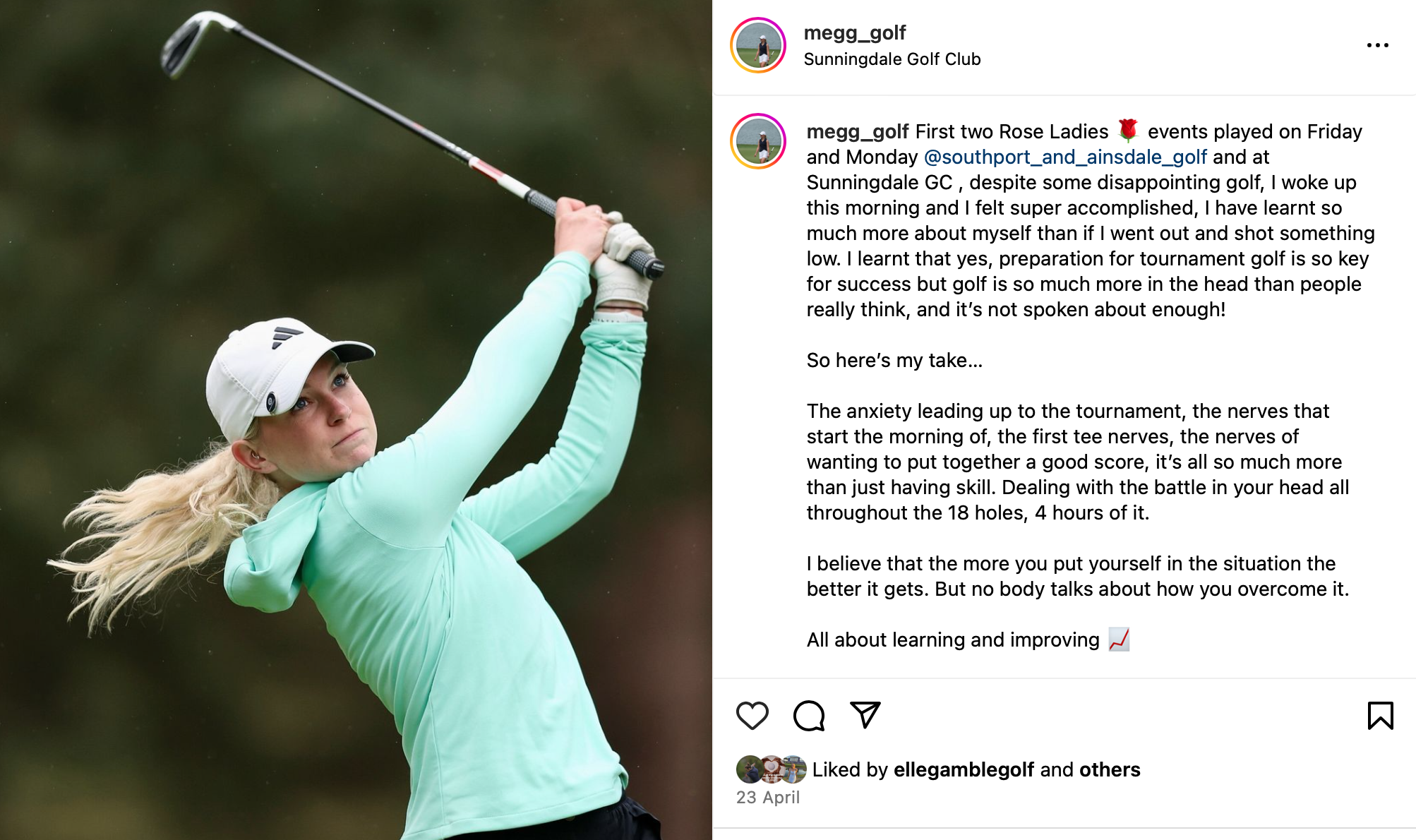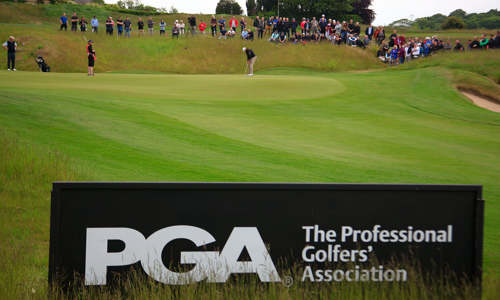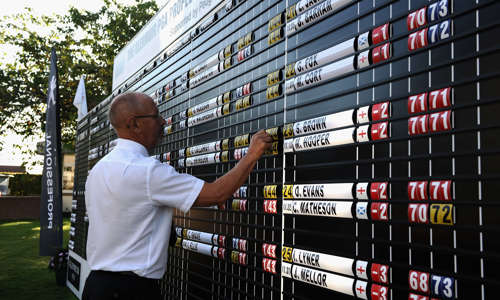Mental Health Awareness Week: Meg Rossouw on anxiety

14/05/2024
The Mental Health Foundation’s Mental Health Awareness Week takes place from 13-19th May 2024, with the aim of bringing the country together to focus on improving mental health.
One of the more well-known mental health issues is anxiety, with 37% of women and 30% of men experiencing anxiety in 2023.
Trainee PGA Professional Meg Rossouw (Cumberwell Park Golf Club), a regular player on the WPGA Series, recently took part in the Rose Ladies Series, competing in tournaments at Sunningdale Golf Club and Southport and Ainsdale Golf Club, where her anxiety became more prominent.
Rossouw originally shared her thoughts on anxiety via Instagram, stating in one of her post captions:
“The anxiety leading up to the tournament, the nerves that start the morning of, the first tee nerves, the nerves of wanting to put together a good score, it’s all so much more than just having skill. Dealing with the battle in your head throughout the 18 holes, 4 hours of it.”
According to the Mental Health Foundation, the effect of anxiety on your mind can include fearing the worst, feeling on edge, difficulty concentrating, irritability and more, whilst the physical feelings can include restlessness, shortness of breath, nausea, and sleep problems amongst others.
Anxiety can also affect your behaviour, with some people withdrawing from friends and family, feeling unable to go to work, or avoiding certain places.
There are many mental health benefits to golf, however, many PGA Professionals may put pressure on themselves and in turn increase anxiety when it comes to tournament play, as Rossouw discusses:
“When you get to a certain level, there’s an immense amount of pressure put on you - mostly by yourself, but others too. It can become less about going out and playing, and more about what you score, the build up to tournaments, knowing you have put the work in, etc.
“From my recent experiences, entering into tournaments where there are spectators and people watching live scoring, for me that was a huge test mentally - trying to ignore the distractions of social media and what people are thinking in order to perform.
“That being said, it also helped me appreciate the calmness I felt when there were less distractions, allowing me to just go out and play, which showed through my performance - my improved mental state resulted in lower scoring.
“In my opinion the only way to cope with the mental battle is to put yourself out of your comfort zone - there’s no quick way to endure it, just embrace the moment and the feeling, while trusting the process of growth and development.”
When you get to a certain level, there’s an immense amount of pressure put on you - mostly by yourself, but others too. It can become less about going out and playing, and more about what you score, the build up to tournaments, knowing you have put the work in.
-
Rossouw’s suggestion is further supported by the Mental Health Foundation who suggest that exposing yourself to your fears can be an effective way of overcoming this anxiety. Other suggestions include learning more about the anxiety in order to better address it, talking with a friend or family member to gain support, or learning relaxation techniques.
The Mental Health Foundation advises that the first step to getting support is usually to speak to your GP. You can also find ‘how to’ guides on managing a range of mental health issues, as well as how to support others at https://www.mentalhealth.org.uk/




































